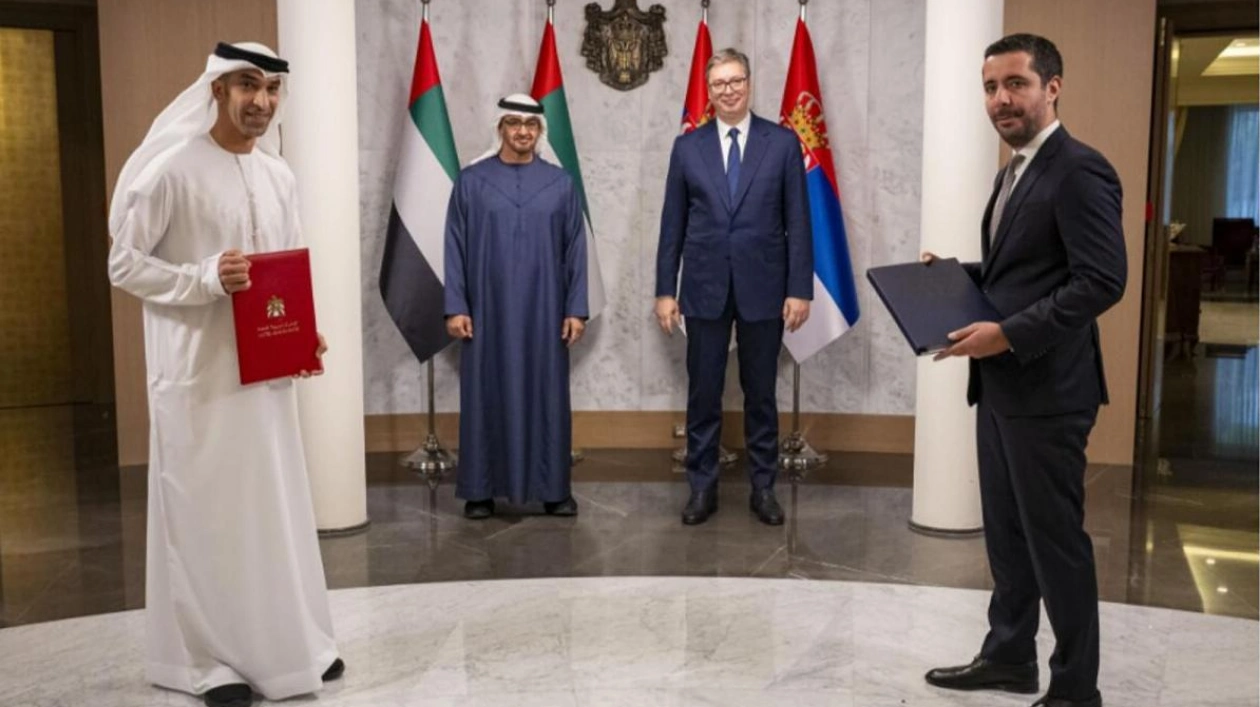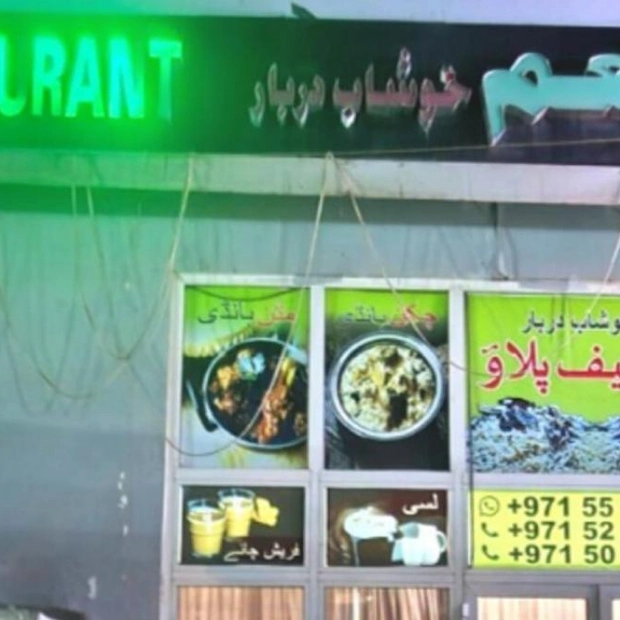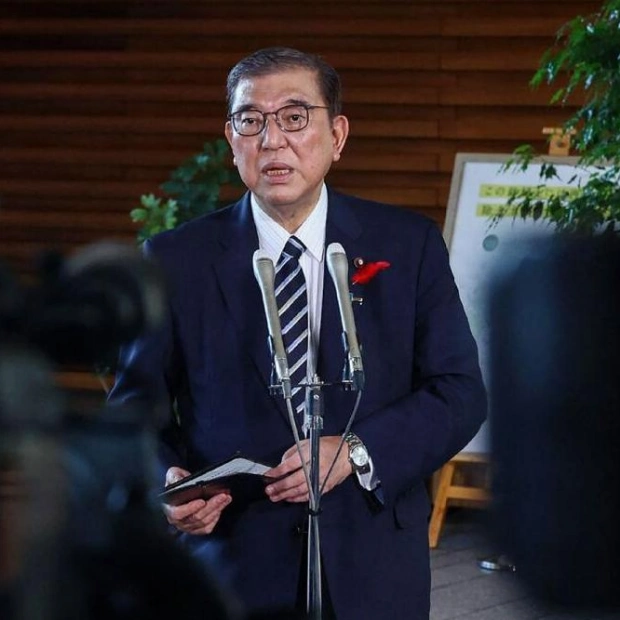The UAE and Serbia signed a Comprehensive Economic Partnership Agreement (Cepa) on Saturday, marking a significant milestone in their economic relations. The strategic trade deal is projected to contribute $351 million to the UAE's GDP by 2032. This agreement, the first under the UAE's comprehensive economic partnership program with a non-WTO member country, is also anticipated to elevate bilateral non-oil trade to $500 million over the next five years, up from $122.9 million in 2023. This move is expected to facilitate increased trade and investment flows, as well as foster collaboration between the private sectors of both nations.
His Highness Sheikh Mohamed bin Zayed Al Nahyan, the UAE President, who witnessed the signing in Belgrade, emphasized that the deal "paves the way for a new era of economic cooperation and underscores our mutual commitment to fostering enduring growth and prosperity for our countries and people." The UAE's Cepa program is set to boost the country's exports by 33% and add over Dh153 billion to its GDP by 2031. The UAE aims to sign 26 Cepa deals, having already concluded trade treaties with India, Turkey, Israel, Cambodia, and Georgia, while negotiations are ongoing with Japan, Malaysia, New Zealand, and Ecuador.
In a related development, the UAE and Malaysia are expected to sign a free trade agreement this month, following extensive negotiations. The Cepa, implemented by the UAE since late 2021, is a cornerstone of the country's growth strategy, targeting a doubling of foreign trade to Dh4 trillion by 2031. Sheikh Mohamed highlighted the Cepa exchange with Serbia as a pivotal moment in UAE-Serbia relations, stating, "The Cepa with Serbia marks a significant step in our mission to build a network of trade agreements that will spur investment, encourage knowledge-sharing, and create opportunities for joint ventures in high-growth sectors."
Serbian President Aleksandar Vučić expressed optimism that the agreement would open new avenues for economic cooperation and diversification, promoting sustainable growth and prosperity for both nations. Upon implementation, the UAE-Serbia Cepa is expected to eliminate or reduce duties on various product lines, remove trade barriers, safeguard intellectual property rights, support SMEs, and facilitate mutual investment flows. The UAE is Serbia's third-largest export market in the Middle East, with increased FDI flowing into priority sectors such as renewable energy, agriculture, food security, infrastructure, and logistics.
Dr. Thani bin Ahmed Al Zeyoudi, Minister of State for Foreign Trade, noted that the Cepa between the UAE and Serbia includes tariff reductions and eliminations on up to 96% of customs tariff lines, a more comprehensive approach compared to agreements with WTO member countries. He emphasized that the agreement serves as a crucial bridge to the Balkans and Southeast Europe, reflecting the shared ambition of both nations to usher in a new era of bilateral cooperation and sustainable economic growth.






